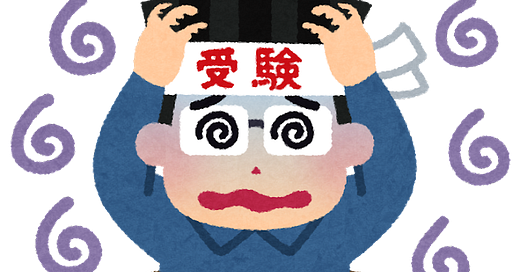As always, it's swarming with people who seem marketing-savvy. What they are flocking to is the term 'digital transformation.' Given the current social circumstances, everyone is urged to go digital or online. Many people even view this as a 'business opportunity,' so everyone starts talking about 'digital transformation.'
Digital transformation isn't a complex concept. It refers to the process of going digital or online. If a traditional inn that only accepted phone reservations begins to handle online bookings, that is digital transformation.
I believe it's extremely unhealthy to link this societal situation with marketing jargon, transforming it into a conversation about some kind of enlightened marketing shift. I myself have faced the reality of illness, and there are many people who have tragically lost family members. Over 100,000 people have died in the United States. Given these circumstances, significant societal changes are naturally taking place. However, getting excited about it as if a 'big wave' has arrived seems simply insensitive. For those who are able to do so, they should quietly continue their work. Those who loudly proclaim buzzwords in such a situation are mostly just trying to stir up the world and pocket the differences.
And there it is, "digital transformation." It's the same old story. We've seen this with "Web 2.0," and more recently "social media," and "influencer marketing." These terms act like the streetlights on a summer night, attracting people only to burn them out. Suddenly, people who never thought about these things before start talking about "digital transformation."
Now, as for me writing all of this, I've been involved in quite large-scale digital transformation work, and I have various plans in motion. So everything I've written so far seems like it could boomerang back at me.
However, things like "digital transformation" were always supposed to happen. The current circumstances have just accelerated the process. Consider the "online election" debate that has been going on forever - that's digital transformation.
So, I find myself talking about this quite often in meetings and various places recently. There are areas where I firmly believe that we need to carry out digital transformation as soon as possible. I think by doing so, we can easily eradicate the prehistoric 'devil's culture' that pervades the world. I'm considering writing about one such area: education.
Now, you might think that's nothing new; topics like remote learning are always making headlines. But the story of digital transformation in education goes beyond just online classes.
My highest level of education is dropping out of the Faculty of Law at the University of Tokyo. When I passed the entrance exam and enrolled in college, the moment I attended what seemed to be a law class, I thought, "Ah! I made a mistake!" After that, I barely attended classes, spent my days with musical instruments and part-time jobs, and was kicked out of the university after seven years due to time limit as I extended my moratorium. People often say things like, "Dropping out of Tokyo University, that's gutsy," or "That's impressive," but what I feel most is a sense of guilt. I don't think there was any meaning in me enrolling in the Faculty of Law or the liberal arts program at the University of Tokyo. I have almost no legal knowledge to this day. I look up relevant laws when I need to, such as when I have a dispute with a landlord for renting a house or when I set up a company, but that's the extent of my engagement with the law.
Therefore, there was no sense in me, who had no intention of becoming a legal professional, being enrolled in the Faculty of Law at the University of Tokyo, an institution meant to nurture top-level legal professionals in Japan. While the friendships I made in school are priceless, the handful of classes I took and the exams I sat for during my time at the University of Tokyo's Faculty of Law have not served any purpose in my subsequent life. In fact, my job, which involves doing creative things as a digital technology supervisor, has nothing to do with it.
What this means is that by my being there, there's a high probability that I've crushed the potential of someone who should have received top-notch legal education by enrolling in the Faculty of Law at the University of Tokyo and contributed to society as a legal professional. Had I not enrolled, that person could have learned what they wanted to learn and done what they wanted to do. However, the number of students in a university and the number of people who pass the entrance examination are both limited.
I did make significant efforts to get into university. But those efforts were probably just to win the game of entrance exams, and by passing and taking up a slot, I may have taken the future of a young person who genuinely wanted to study law and possibly changed that person's life. One might argue that those who don't intend to become legal professionals shouldn't take the exam, but you can't know if you're suited to be a legal professional until you study and find out for yourself.




